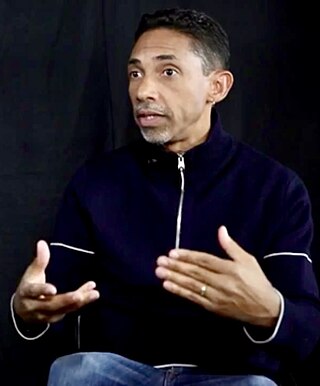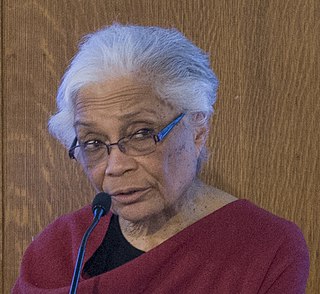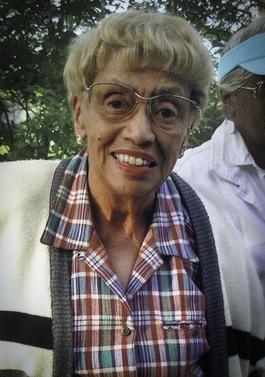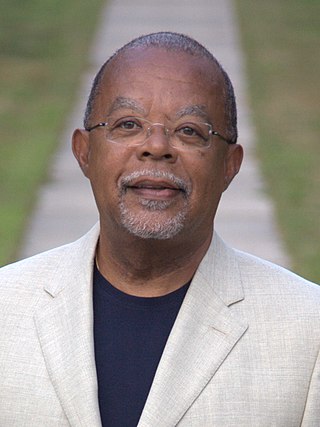Advanced Placement (AP) is a program in the United States and Canada created by the College Board. AP offers undergraduate university-level curricula and examinations to high school students. Colleges and universities in the US and elsewhere may grant placement and course credit to students who obtain high scores on the examinations. The AP curriculum for each of the various subjects is created for the College Board by a panel of experts and college-level educators in that academic discipline. For a high school course to have the designation, the course must be audited by the College Board to ascertain that it satisfies the AP curriculum as specified in the Board's Course and Examination Description (CED). If the course is approved, the school may use the AP designation and the course will be publicly listed on the AP Course Ledger.
Ethnic studies, in the United States, is the interdisciplinary study of difference—chiefly race, ethnicity, and nation, but also sexuality, gender, and other such markings—and power, as expressed by the state, by civil society, and by individuals. "The unhyphenated-American phenomenon tends to have colonial characteristics," notes Jeffrey Herlihy-Mera in After American Studies: Rethinking the Legacies of Transnational Exceptionalism: "English-language texts and their authors are promoted as representative; a piece of cultural material may be understood as unhyphenated—and thus archetypal—only when authors meet certain demographic criteria; any deviation from these demographic or cultural prescriptions are subordinated to hyphenated status." As opposed to International studies, which was originally created to focus on the relations between the United States and Third World Countries, Ethnic studies was created to challenge the already existing curriculum and focus on the history of people of different minority ethnicity in the United States. Ethnic studies is an academic field that spans the humanities and the social sciences; it emerged as an academic field in the second half of the 20th century partly in response to charges that traditional social science and humanities disciplines such as anthropology, history, literature, sociology, political science, cultural studies, and area studies were conceived from an inherently Eurocentric perspective. Its origin comes before the civil rights era, as early as the 1900s. During this time, educator and historian W. E. B. Du Bois expressed the need for teaching black history. However, Ethnic Studies became widely known as a secondary issue that arose after the civil rights era. Ethnic studies was originally conceived to re-frame the way that specific disciplines had told the stories, histories, struggles and triumphs of people of color on what was seen to be their own terms. In recent years, it has broadened its focus to include questions of representation, racialization, racial formation theory, and more determinedly interdisciplinary topics and approaches.

Michael Eric Dyson is an American academic, author, ordained minister, and radio host. He is a professor in the College of Arts and Science and in the Divinity School at Vanderbilt University. Described by Michael A. Fletcher as "a Princeton Ph.D. and a child of the streets who takes pains never to separate the two", Dyson has authored or edited more than twenty books dealing with subjects such as Malcolm X, Martin Luther King Jr., Marvin Gaye, Barack Obama, Nas's debut album Illmatic, Bill Cosby, Tupac Shakur and Hurricane Katrina.
Mary R. Lefkowitz is an American scholar of Classics. She is the Professor Emerita of Classical Studies at Wellesley College in Wellesley, Massachusetts, where she previously worked from 1959 to 2005. She has published ten books over the course of her career.

Robin Davis Gibran Kelley is an American historian and academic, who is the Gary B. Nash Professor of American History at UCLA.

James A. Joseph was an American diplomat.

Kimberlé Williams Crenshaw is an American civil rights advocate and a leading scholar of critical race theory. She is a professor at the UCLA School of Law and Columbia Law School, where she specializes in race and gender issues.
Charles R. Kesler is professor of Government at Claremont McKenna College and Claremont Graduate University. He is editor of the Claremont Review of Books, and the author of several books. He also serves on the Board of Trustees at New College of Florida.

Sharon Egretta Sutton, is an American architect, educator, visual artist, and author. Her work is focused on community-based participatory research and design. She is a professor emerita at the University of Washington. In 1984, she became the first African American woman to become a full professor in an accredited architectural degree program while teaching at the University of Michigan. She has also taught at Parsons School of Design, and Columbia University.

Andrew Fraknoi is a retired professor of astronomy recognized for his lifetime of work using everyday language to make astronomy more accessible and popular for both students and the general public. In 2017 Fraknoi retired from his position as Chair of the Department of Astronomy at Foothill College. In retirement he continues to teach through the Fromm Institute for Lifelong Learning and the Osher Lifelong Learning Institute at San Francisco State University, to give public lectures, and to add to his body of written work. He is the recipient of numerous awards and honors in his field.
George M. Fredrickson was an American author, activist, historian, and professor. He was the Edgar E. Robinson Professor of United States History at Stanford University until his retirement in 2002. After his retirement he continued to publish several texts, authoring a total of eight books and editing four more in addition to writing various articles. One of his best known works remains White Supremacy: A Comparative Study of American and South African History, which received the Ralph Waldo Emerson Prize and the Merle Curti Award as well as made him a finalist of the Pulitzer Prize for History and the National Book Award.
William D. Novelli was born in Bridgeville, PA. He is an executive, public relations professional, author and educator. He is currently Distinguished Professor of the Practice, McDonough School of Business, Georgetown University where he teaches in the MBA program and founded the Georgetown Business for Impact center. He also serves as the co-chair of the Coalition to Transform Advanced Care (C-TAC), an organization he co-founded in 2009 to improve advanced illness and end of life care in the U.S. He earlier co-founded Porter-Novelli, today a global public relations firm. Prior to joining the faculty at Georgetown in 2009, Bill was the CEO of AARP . He has been influential in American politics, especially in issues related to health and health care.

Jewel Plummer Cobb was an American biologist, cancer researcher, professor, dean, and academic administrator. She contributed to the field of cancer research by studying the cure for melanoma. Cobb was an advocate for increasing the representation of women and students of color in universities, and she created programs to support students interested in pursuing graduate school.

Ronald Dion DeSantis is an American politician, attorney, and former military officer serving since 2019 as the 46th governor of Florida. A member of the Republican Party, DeSantis represented Florida's 6th congressional district in the U.S. House of Representatives from 2013 to 2018.

Henry Louis "Skip" Gates Jr. is an American literary critic, professor, historian, and filmmaker who serves as the Alphonse Fletcher University Professor and the director of the Hutchins Center for African and African American Research at Harvard University. He is a trustee of the Gilder Lehrman Institute of American History. He rediscovered the earliest known African-American novels, long forgotten, and has published extensively on appreciating African-American literature as part of the Western canon.

Ibram Xolani Kendi is an American author, professor, anti-racist activist, and historian of race and discriminatory policy in America. In July 2020, he assumed the position of director of the Center for Antiracist Research at Boston University.

Jill Casey DeSantis is an American former news and television show host and the current first lady of Florida, as the wife of Governor Ron DeSantis.
Dr. Faye Venetia Harrison is an American anthropologist. Her research interests include political economy, power, diaspora, human rights, and the intersections of race, gender, and class. She is currently Professor of African American Studies and Anthropology at the University of Illinois at Urbana-Champaign. She formerly served as Joint Professor of Anthropology and African American Studies at the University of Florida. Harrison received her BA in Anthropology in 1974 from Brown University, and her MA and PhD in Anthropology from Stanford University in 1977 and 1982, respectively. She has conducted research in the US, UK, and Jamaica. Her scholarly interests have also taken her to Cuba, South Africa, and Japan.
Advanced Placement (AP) African American Studies is a pilot college-level course and examination offered to a limited number of high school students in the United States through the College Board's Advanced Placement program. The course will be dedicated solely to learning about and researching the African diaspora and is designed to elevate African-American history and education.
Daniel Soderstrom is an American educator best known for his participation in the creation of College Board's new AP African American Studies course.











